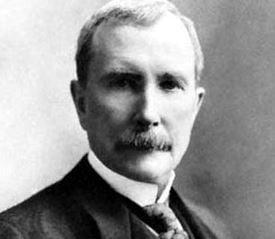What is management?
In a business or organization, Management refers to the function that coordinates everybody’s efforts to achieve goals using available resources effectively and efficiently. Management can refer to either the people who manage or the function of managing.
Management includes leading or directing, staffing, organizing, planning and controlling a company to achieve a goal or reach a target.
The basic function of management in business is to get the employees to work together so that goals and objectives can be achieved.
For example, a manager who is in charge of building a bridge has to coordinate the efforts of his or her team and ensure all members get the resources required to get the job done. The manager is held responsible if the goal is not met.

Management versus Leadership: while a managers’ and leaders’ jobs share many similarities, their main differences are: 1. The manager’s aim is to coordinate. 2. That of a leader is to motivate and inspire.
Effective management also encompasses the ability to adapt to changing environments and markets, ensuring that the organization remains relevant and competitive by embracing new technologies, strategies, and business models.
In addition to traditional management functions, modern management increasingly involves focusing on sustainability and corporate social responsibility, ensuring that business practices not only yield profit but also contribute positively to society and the environment.
Etymology of the word management
The English verb to “manage” comes from the Italian word to handle maneggiare, which derives from the Latin word manus, meaning ‘hand’.
The French word mesnagement, which later became ménagement, influenced the meaning of the word “management” in England in the 17th and 18th centuries.
Management is said to have four basic functions:
Planning: selecting the tasks that need to be done to meet goals, outlining how these tasks are carried out, and when they should be done.
Organizing: this involves deciding who does what (in the tasks outlined in the planning stage). It is the creation of mechanisms to put a plan into action.
Influencing: motivating the team members, guiding their activities so that the goals are more likely to be achieved. Influencing is a vital component of effective leadership and improving productivity.
Controlling: involves measuring performance by gathering and examining data, comparing how well employees and resources (such as machinery) are performing with what was planned, and determining what to about it if there are discrepancies.
Levels of management
In a small business, there is typically just one level of management. Perhaps the manager of a small shop is also the owner. In large companies, there may be three levels:
-
Upper Management
These are top-level executives who are responsible for overall strategy and direction. In other words, the directors and CEO (chief executive officer).
-
Middle Management
Middle managers oversee specific departments or functions, implementing upper management strategies, i.e., they carry out the strategies that were decided by upper management.
-
Lower Management
This level consists of supervisors or team leaders. They manage day-to-day operations and direct employees.
From the root word ‘manage’
Management, which is a noun, comes from the root word manage. Many words in the English language come from manage, including nouns, verbs, adjectives, and adverbs. Let’s have a look at some of them:
Nouns
- Manager – somebody who is in charge.
- Manageress – a female manager. Today, it is common to use the word ‘manager’ for both men and women.
- Mismanagement – poor, ineffective management, as in:
“The restaurant went bankrupt partly because of mismanagement.” - Managerialism – the belief in or prioritization of managerial techniques in running organizations.
Verbs
- To Manage – to run, control, or oversee.
- To Mismanage – to run, control, handle, or oversee poorly.
Adjectives
- Managerial – relating to management, as in:
“Her managerial skills were evident in how efficiently the team met its targets.” - Manageable – capable of being managed or controlled, as in:
“The project’s scope was finally made manageable after some adjustments.” - Managerless – without a manager, as in;
“The team found itself managerless after the sudden resignation of their leader.” - Managerialist – advocating or practicing managerialism, as in:
“His managerialist approach emphasized the importance of strong leadership in organizational success.”
Adverbs
- Managerially – in a managerial manner, as in:
“She handled the crisis managerially, showcasing her leadership and organizational skills.”
Compound phrases with ‘management’
With the word ‘management,’ we can make many compound phrases. Let’s have a look at the ten most common ones used in the world of business:
- Management team: Group of leaders managing an organization.
- Management style: Approach a manager uses to lead.
- Management system: Framework organizing business processes.
- Management strategy: Tactics to achieve organizational goals.
- Management process: Activities for directing an organization.
- Management structure: Organizational hierarchy and design.
- Management skills: Abilities needed for effective management.
- Management plan: Outline for achieving business goals.
- Management practices: Established methods of managing.
- Management role: Specific managerial responsibilities and functions.
Famous quotes about management
 John D. Rockefeller (1839-1937), an American business magnate and philanthropist, said: “Good management consists in showing average people how to do the work of superior people.”
John D. Rockefeller (1839-1937), an American business magnate and philanthropist, said: “Good management consists in showing average people how to do the work of superior people.”
 Lido Anthony “Lee” Iacocca (born 1924), an American businessman who engineered the Ford Mustang and Ford Pinto cars and revived the Chrysler Corporation in the 1980s, said: “Management is nothing more than motivating other people.”
Lido Anthony “Lee” Iacocca (born 1924), an American businessman who engineered the Ford Mustang and Ford Pinto cars and revived the Chrysler Corporation in the 1980s, said: “Management is nothing more than motivating other people.”
 Jack Welch (born 1935) was head of General Electric company between 1981 and 2001. During his tenure, the company’s value increased by over 4,000%. Mr. Welch said: “You can’t grow long-term if you can’t eat short-term. Anybody can manage short. Anybody can manage long. Balancing those two things is what management is.”
Jack Welch (born 1935) was head of General Electric company between 1981 and 2001. During his tenure, the company’s value increased by over 4,000%. Mr. Welch said: “You can’t grow long-term if you can’t eat short-term. Anybody can manage short. Anybody can manage long. Balancing those two things is what management is.”
 Anthea Turner (born 1960), a British TV presenter and media personality, said: “The first rule of management is delegation. Don’t try and do everything yourself because you can’t.”
Anthea Turner (born 1960), a British TV presenter and media personality, said: “The first rule of management is delegation. Don’t try and do everything yourself because you can’t.”
Video – What is Management?
This video presentation, from our YouTube partner channel – Marketing Business Network, explains what ‘Management’ means using simple and easy-to-understand language and examples.

